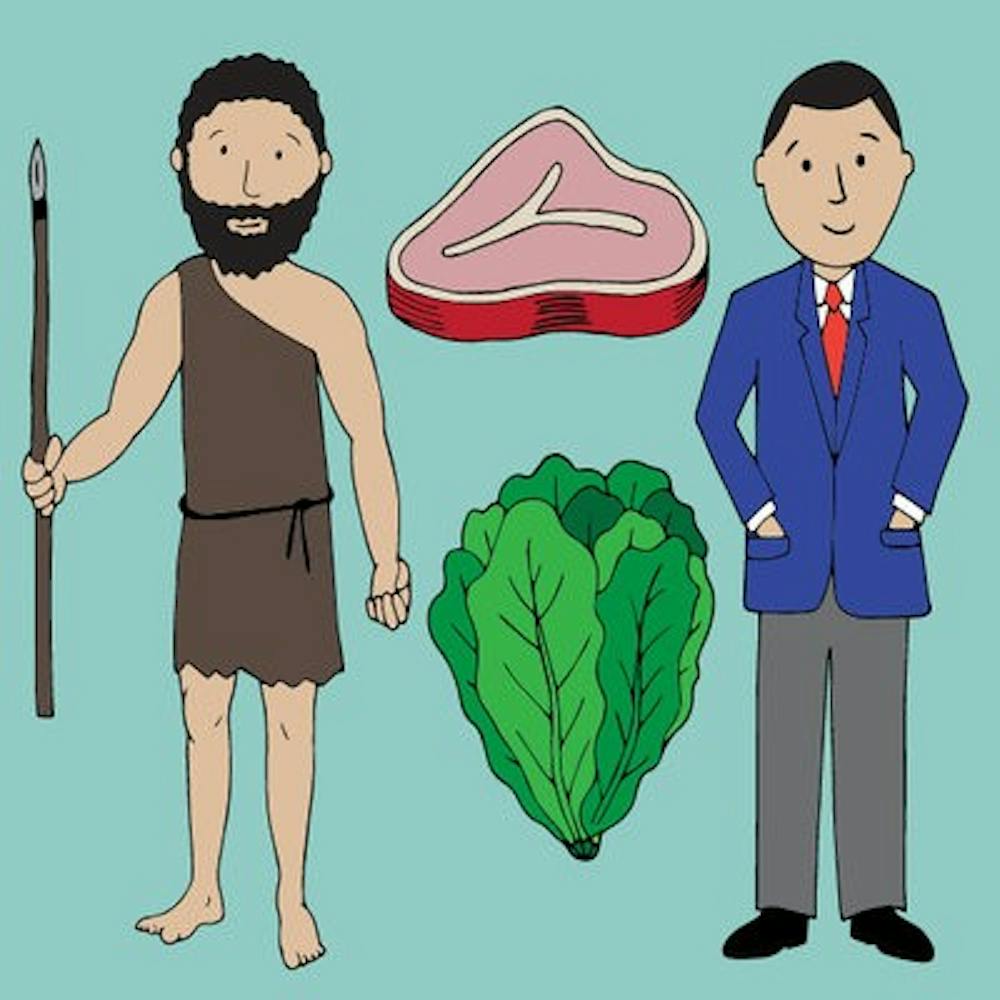For years, "paleo" simply referred to the Paleolithic era.
The Paleo Diet is named after the Paleolithic era, and the foods allowed on the diet are intended to mimic what cavemen ate during this period.
The foods allowed on the diet are grass-fed and pasture-raised meats, eggs, vegetables, fruits and nuts.
Excluded foods include anything thought to be an agricultural product: grains, legumes, dairy, potatoes, refined sugar, salt and processed oils.
The diet was first popularized in the 1970s, but it has lost much of its acclaim.
Recently, the diet has gained the attention of alternative health professionals and dieters alike, and has even found its way to the Plains.
"I did the Paleo Diet for about a month," said Darby Stanton, recent Auburn graduate. "Alcohol was my one exception."
Kelly Tsaltas, Auburn alumna, and Matt Villarrubia, senior in software engineering, are both taking on the diet for 30 days.
"(Matt and I) needed the structure and rigidity of a strict healthy diet to get ourselves started [on the diet]," Tsaltas said.
The diet is restrictive, as Stanton, Tsaltas and Villarrubia have attested, but for Villarrubia, this aspect was appealing.
"The diet made me focus and deal with less food," Villarrubia said.
However, when asked about the most difficult part of the diet, Villarrubia listed the lack of dairy, beans, rice and bread as major issues.
Stanton said she finds the lack of Paleo choices at restaurants difficult.
"I found Paleo to be extremely limiting in today's society," Stanton said. "If you go out to eat, what are you going to order? Spinach leaves in olive oil?"
Stanton also points out the expenses and said being on the Paleo diet can be expensive when someone is on a college budget.
Although there are people who praise the benefits of Paleo dieting, there are those who do not find the diet logical.
"The underlying premise behind the Paleo diet is that the ills of modern human health can be traced back to the Agriculture Revolution," said Alexander Roberson, Auburn agriculture alumnus. "But man existed for millennia after the Agriculture Revolution with grains and dairy in their diet just fine."
Roberson said the real problem with modern society's health is the increased consumption of sugar and the decrease in physical activity.
"It's a health-food fad that is quick to demonize," Roberson said. "While it is tempting to trace back our eating habits to a time before obesity, it is important to remember we left the Paleolithic age for a reason."
Despite the drawbacks, Villarrubia said there were definite advantages to the diet.
"I lost about 15 pounds and was more energetic for sure," Villarrubia said.
Tsaltas said she is going to continue to carry on some of her lessons from the experience.
"I added in [to my Paleo Diet] dairy, bread, that doesn't have preservatives that I get from the farmers market, and macaroni and cheese," Tsaltas said. "That's it."
Stanton does not agree with this sentiment.
"I just really love eating and some of the things I couldn't eat were pretty outrageous," Stanton said. "I stick to about an 80 percent Paleo diet now, so I don't absolutely loathe myself if I eat the mac and cheese at The Hound."
Do you like this story? The Plainsman doesn't accept money from tuition or student fees, and we don't charge a subscription fee. But you can donate to support The Plainsman.





